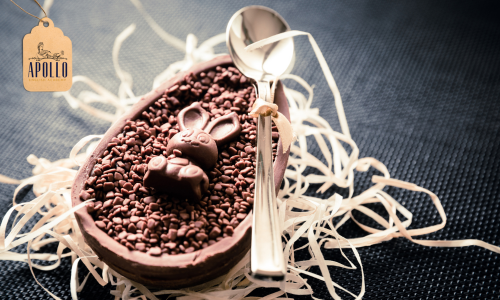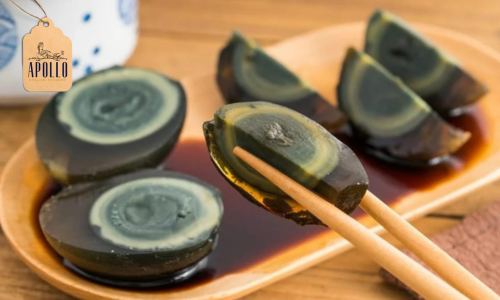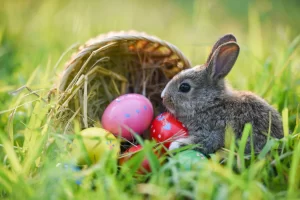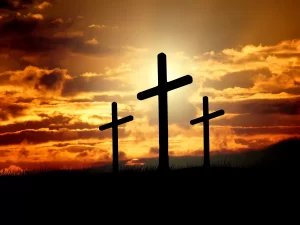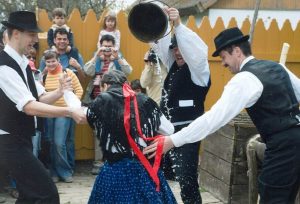Introdução
A Holy Week e a Easter são mais do que datas marcadas no calendário — elas representam um momento especial de conexão entre fé, cultura, história e até mesmo um toque de doçura. 🌿🐣 Seja por motivos religiosos, por tradições familiares ou simplesmente pela magia dos ovos de chocolate, esse período do ano é celebrado de formas únicas ao redor do mundo, misturando o sagrado com o simbólico, o antigo com o moderno.
Para muitos, a Semana Santa é uma oportunidade de reflexão espiritual, revivendo os últimos momentos de Jesus com cerimônias solenes e rituais centenários. Para outros, a Páscoa é sinônimo de almoços em família, coelhinhos simpáticos e mercados repletos de ovos brilhantes pendurados no teto. E há também quem celebre com rituais folclóricos, como as “bruxinhas de Páscoa” suecas ou as encenações impressionantes nas ruas das Filipinas.
Neste artigo, vamos explorar o significado da Holy Week, o simbolismo por trás da Easter, e como diferentes culturas expressam esse espírito de renovação — com fé, criatividade e um pouquinho de chocolate. 🍫✨ Se você é apaixonado por tradições, idiomas e diversidade cultural, prepare-se para uma leitura que vai muito além do domingo de Páscoa!
📖 Aqui você encontra…
Nível:
B1 (Intermediário)
Objetivo:
Aprimorar o vocabulário e a compreensão em inglês sobre feriados culturais e religiosos, com foco na Holy Week, Easter, e tradições internacionais.
Tópicos gramaticais abordados nesse texto:
-
Present Simple: Para descrever tradições e verdades gerais, como em “Easter celebrates the resurrection of Jesus Christ.”
-
Past Simple: Para contar a origem dos símbolos, como em “Egg-decorating traditions began centuries ago.”
-
Passive Voice: Para destacar ações em eventos religiosos e culturais, como em “The streets are filled with processions.”
-
Relative Clauses: Para dar mais contexto, como em “Sweden, where children dress up as Easter witches, has a unique tradition.”
-
Expressions of Time and Celebration: Como “during Holy Week,” “on Easter Sunday,” e “every spring,” para contextualizar os eventos. Prepare-se para descobrir como uma mesma celebração pode ganhar cores, formas e sabores completamente diferentes ao redor do mundo!
-
Cultural Vocabulary: Palavras como resurrection, rebirth, tradition, vigil, pilgrimage, customs, gatherings, e devotion ajudam a enriquecer a discussão sobre as celebrações.
Holy Week and Easter: Culture, Tradition, and a Touch of Chocolate
Every year, Holy Week and Easter bring a mix of reflection, faith, celebration — and yes, a little chocolate too. Whether you observe these days for their religious significance, for family traditions, or simply enjoy the long weekend, it’s a time full of meaning and symbolism around the world.
What is Holy Week?
Holy Week is the week that leads up to Easter Sunday. It begins with Palm Sunday, remembering Jesus’ entry into Jerusalem, and includes other important days like Holy Thursday (the Last Supper), Good Friday (Jesus’ crucifixion), and Holy Saturday.
In many countries, especially those with Catholic traditions like Brazil, Spain, and Italy, Holy Week includes processions, reenactments, and community gatherings. It’s a moment of reflection and devotion for many, and a way to connect with heritage and history.
What Does Easter Celebrate?
Easter Sunday is the celebration of the resurrection of Jesus Christ. For Christians, it represents hope, renewal, and the triumph of life over death. But Easter also has older roots — its symbols, like eggs and rabbits, come from ancient spring festivals that celebrated fertility and rebirth.
That’s why today, we see a beautiful blend of traditions: church bells and chocolate eggs, sunrise services and colorful baskets, faith and family all wrapped into one weekend.
Why Eggs and Bunnies?
You might be wondering: how did rabbits and eggs get involved? Well, eggs have long been a symbol of life and new beginnings. Decorating eggs goes back centuries, even before Christianity. The Easter Bunny, on the other hand, became popular in Europe and the U.S. as a symbol of fertility, especially in springtime.
And let’s be honest — who doesn’t love a bit of chocolate to sweeten the message of hope and renewal?
Easter Around the World
Easter may be celebrated on the same day across many countries, but the way people observe it varies widely — and beautifully.
In Brazil, Easter is a mix of religious devotion and sweet traditions. Families often attend church services during Holy Week and gather for a big Easter lunch on Sunday. One of the most beloved customs is exchanging giant chocolate eggs, often filled with surprises inside. Supermarkets turn into colorful displays of foil-wrapped eggs hanging from the ceiling — a sight that signals Easter is near!
In the Philippines, Holy Week is one of the most important religious observances of the year. Cities and towns host live street reenactments of the Passion of Christ, blending drama and faith. The events are deeply emotional and powerful, with thousands of people participating or watching in silence. Some even take part in long pilgrimages or overnight vigils as acts of devotion.
In Sweden, Easter has a fun and unusual twist: children dress up as “Easter witches”, wearing old clothes, headscarves, and painted cheeks. They go from house to house, handing out drawings and hoping for candy in return — much like Halloween! Homes are decorated with feathers, eggs, and branches, and it’s a festive time filled with meals, crafts, and cheerful gatherings.
These diverse traditions remind us that while the meaning of Easter is rooted in renewal and reflection, the way we express that meaning can be incredibly creative — and wonderfully cultural.
Conclusion
Na Apollo Academy, acreditamos que aprender inglês também é mergulhar em outras culturas e tradições. Que tal aproveitar o espírito de renovação da Páscoa para começar uma nova jornada com a gente?
Entre em contato e descubra um jeito leve e personalizado de aprender inglês.
Feliz Páscoa!
🐣 “Spend a Day Eating Chocolate and We’ll Tell You If You’re an Easter Egg or a Rotten Egg”
You think you’re sweet? Or maybe… just a little funky? Choose your chocolates, snacks, and Easter treats and we’ll tell you if you’re the life of the Easter party or the reason the basket smells weird.
What’s your drink with chocolate?

Pick a chocolate snack for your picnic

What shape is your favorite chocolate?

Choose a chocolate dessert:

Where are you eating your chocolate?

Your chocolate motto is:

What do you do after eating too much chocolate?

What chocolate surprise do you find in your Easter egg?

What’s your final chocolate move?

